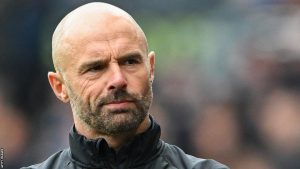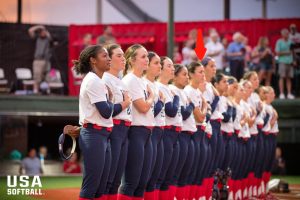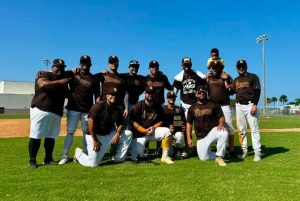
Elias Pettersson senses something is wrong. He can feel it in the pit of his stomach. It’s Dec. 13, 2011 and he’s in the gymnasium at Minervaskolan, a middle school in Ange, Sweden. There’s a floorball tournament taking place this morning and students were supposed to arrive by 8 a.m. That deadline passed 30 minutes ago and Pettersson has begun to worry.
Two of his best friends, Valerik and Davit Danielyan, have not shown up. That’s more than strange, because Pettersson knows the brothers were looking forward to this tournament just as much as him. The 13-year-old pulls out his phone and tries calling his friends, but there’s no answer. Stressed and on the verge of tears, he rings his father and asks him to check out the Danielyan family’s apartment. The knot in his stomach is tightening. “I was just thinking the worst,” he will later explain.
When Torbjörn Pettersson calls his son back, he explains that he has just spoken with the Danielyans’ neighbour. At 6 a.m. that morning, police reported to the residence and gave his friends’ family 15 minutes to pack their belongings. Valerik, Davit, their older brother, Hayk, and parents, Tshakan and Susanna, were being deported back to Armenia.

As the rest of the class catches wind that something is up, the nervous energy spreads. When Pettersson gets off the phone, he relays to students in the hallway what happened to their mates and the news is met with complete silence. Then everybody begins to cry.
“I remember it like it was yesterday,” says Pettersson, leaning forward in his seat and pausing a moment to gather himself. He’s wearing a black toque and matching CELINE hoodie, along with crisp, light blue jeans and unlaced cream Yeezys. The Vancouver Canucks star has just wrapped up a mid-December practice and is sitting on a leather couch in a suite at Rogers Arena. Retelling the story is difficult, even eight years later, but it doesn’t seem as hard for him as it might be on other days. That’s because he’s flanked by Valerik, Davit and Hayk. The brothers are visiting Canada for the first time and Pettersson is their gracious host.
It took a long time to get to this happy reunion, though. The deportation experience in 2011 rocked the Danielyans. It also shook their small Swedish town and impacted a young Pettersson, forcing him to confront realities that most young hockey players never have to face and helping to shape who the cornerstone of the Canucks franchise is today — how he treats people and views life.
The Danielyan brothers don’t know why their father chose Sweden of all countries, but they prefer to describe the decision in hockey terms. Tshakan arrived in 2000 to “scout” the Scandinavian nation and, two years later, his wife and three young children followed. The boys were born in Armenia, near the capital Yerevan, and say simply that their parents moved to Sweden seeking a better future for the family.
After two years in the northern town of Boliden, the Danielyans moved 500 km south to Ange. They became entrenched in that small community and the kids forged their relationship with Pettersson and his older brother, Emil, on a gravel soccer pitch where they spent many hours together. The match was almost perfect: Emil and Hayk are the same age, as are Elias and the youngest Danielyan, Valerik. The boys went to grade school together at Björkbackaskolan. Additionally, the fact that they lived just a three-minute bike ride apart helped foster the friendship.
The brothers assimilated well, eventually learned the language and even dabbled in hockey with the local team. At one point in their childhood, Valerik and Davit found themselves linemates with Pettersson. “It was quite an experience,” says Valerik, who recalls the time he tripped coming over the boards and accidentally slide tackled the future NHLer. “There was always something wrong with my stick. There was a hole in it, I think.”
Adds Pettersson with a grin: “They made the right choice not to continue it.”
The Danielyans’ early experience finding stability and a better life in the country wasn’t an unusual one. As of late 2018, 19.1 per cent of the country’s population was foreign born, according to Statistics Sweden. By comparison, the latest census data pegs 21.9 per cent of the Canadian population as foreign born. Jacob Markstrom, Pettersson’s countryman and teammate on the Canucks, hails from Gavle, and estimates his middle school was comprised of 50 per cent immigrants. “It’s a very open country. I’ve got a lot of friends who are not originally, or their parents are not originally, from Sweden,” Markstrom says. “I think that helps us as a country in Sweden to widen our views. You learn so much from those people and their stories of where they grew up.”
The elder Danielyans also built connections in Ange. Susanna found work at a grocery store and the family eventually moved into an apartment they rented from Pettersson’s father, next door to the police station. Things were going smoothly nearly a decade into their life in Sweden.








